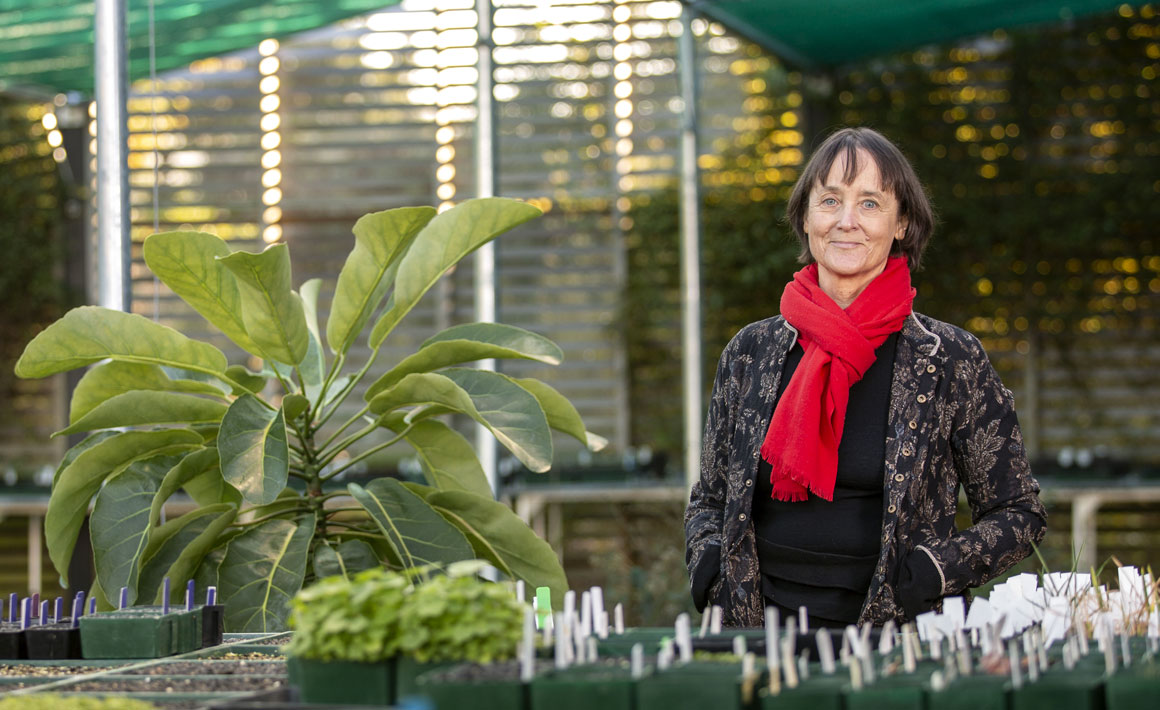 Associate Professor Janet Stephenson: “Having stopped the 'train' for a while, this is a perfect opportunity to lay a new track towards a more secure future…”
Associate Professor Janet Stephenson: “Having stopped the 'train' for a while, this is a perfect opportunity to lay a new track towards a more secure future…”Associate Professor Janet Stephenson outlines ideas to help kick-start New Zealand to a more sustainable way of life.
COVID-19 is arguably the greatest disruption New Zealand has faced since the Great Depression, yet Associate Professor Janet Stephenson believes the pandemic's impacts will be trivial compared to the likely economic and social disruption if we continue to destroy the environment.
Stephenson, who is the director of Otago's Centre for Sustainability, says the sudden shock of the coronavirus pandemic has shown how quickly governments and societies can act to deal with an imminent existential threat.
“But at the same time, we're failing to take serious action to avoid the increasingly visible emergencies caused by human over-consumption, over-exploitation and radical destabilisation of natural systems.
“Economies typically roll along like trains on tracks – locked into a pathway that is hard to divert. Having stopped the 'train' for a while, this is a perfect opportunity to lay a new track towards a more secure future, to safeguard future generations, to re-design our direction, to define a new normal and make it our way of life.”
She outlines seven key ideas to achieve this, but warns that the success lies in achieving all at the same time, not just the one or two that seem easiest.
- Radically reducing greenhouse gas emissions. We've made a commitment as a nation to get to zero net carbon by 2050. The time for prevarication is over.
- Preparing for the impacts of climate change. Even if emissions are reduced, we will still have to adapt to sea-level rise, more floods and more droughts in addition to our existing natural hazards. Climate resilience must be “baked-in”.
- Restoring the vitality of natural systems. Our lives and livelihoods depend on healthy and diverse ecosystems and natural processes. Restoration and regeneration are part of a sustainable economy.
- Increasing local, regional and national self-sufficiency. COVID-19 has shown the fragility of reliance on global markets. We need to be locally resilient to deal with the repercussions of local and global environmental disasters.
- Developing a circular economy. We are despoiling the planet with 'throw-away' business models. We need to account for social and environmental costs and benefits, use resources sparingly, make products that last longer and safely re-purpose all forms of waste.
- Being socially responsible. Disadvantage begets further disadvantage in times of stress. Our new direction must focus on reducing inequities and improving health and well-being for all.
- Working together. The COVID-19 response has shown how our best instinct in times of trouble is to work together for a common vision. This requires goodwill, innovation and collaboration, powered by partnerships between all sectors and sound Treaty-based relationships.
